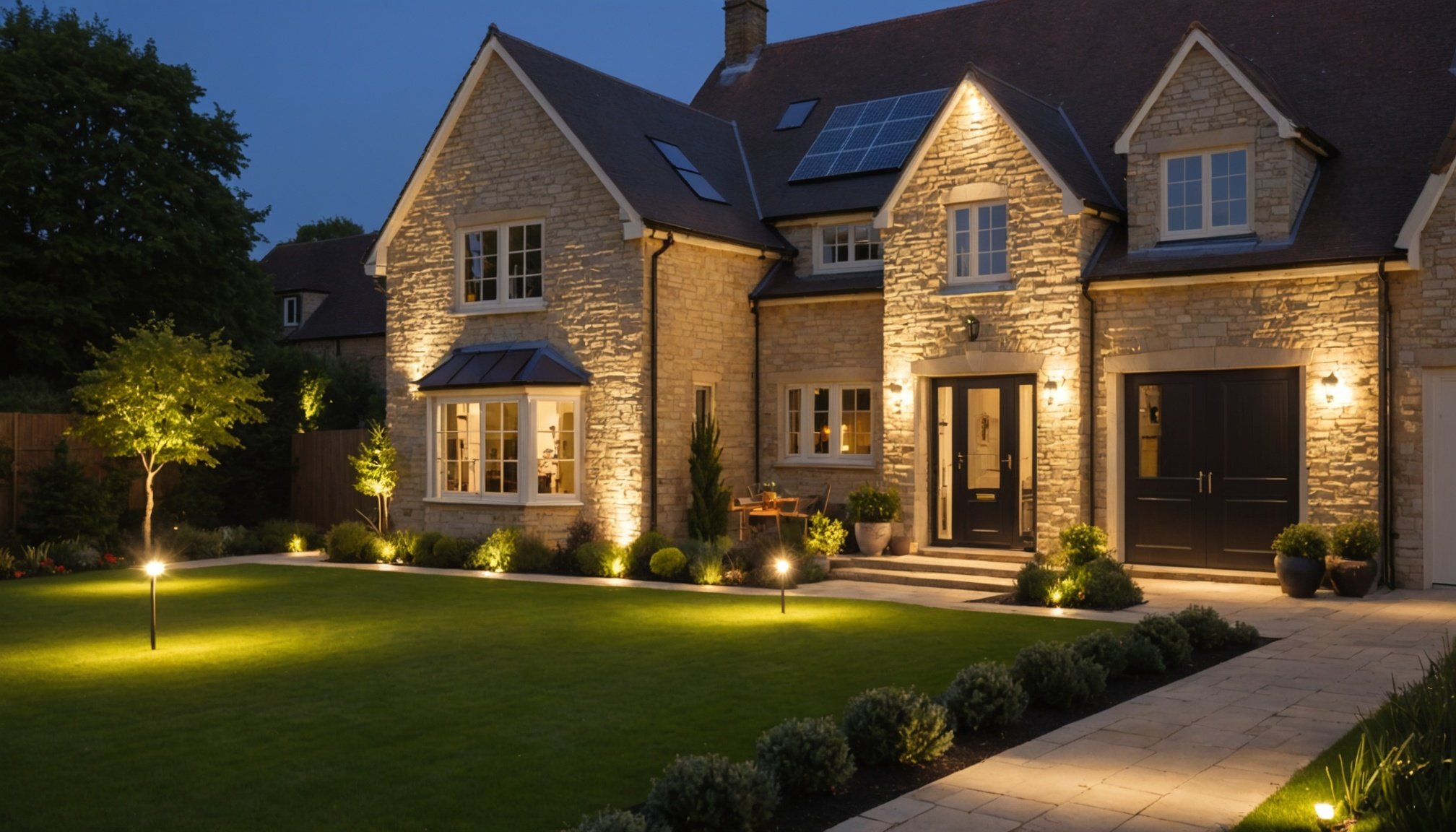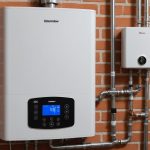Solar-powered lighting offers UK homeowners the perfect blend of security and style. Discover how to transform your outdoor spaces into beautifully illuminated areas while enhancing safety. This guide provides practical insights into selecting the right fixtures, optimising installation, and harnessing solar energy effectively. Whether it's for your garden, porch, or driveway, find out how to create a stunning ambience that reflects your personal style and meets your security needs. Embrace eco-friendly illumination and elevate your home's exterior effortlessly.
Understanding Solar-Powered Outdoor Lighting
Solar-powered lighting is an innovative solution for illuminating outdoor spaces without the need for traditional electricity. It operates using photovoltaic panels that convert sunlight into electricity, which is then stored in a battery for use when it's dark. The main components of solar lighting include the solar panel, battery, light source, and a controller that manages the power flow.
En parallèle : Unveiling the beauty of antique astronomical clocks
One of the primary benefits of solar lights is their eco-friendliness, as they rely on renewable energy. This makes them a sustainable choice for reducing carbon footprints. Additionally, they offer cost savings on electricity bills and are relatively easy to install, as they do not require wiring.
Outdoor lighting options vary widely, catering to different needs and aesthetics. For security purposes, motion-sensor solar lights are popular, providing illumination only when movement is detected. Garden lights, on the other hand, are designed to enhance the visual appeal of landscapes and walkways.
Dans le meme genre : Ultimate Guide to Budget-Friendly Soundproofing Solutions for Bedrooms in the UK
By comparing the types of solar lights available, one can find options that best suit their requirements, whether it's for security, decoration, or both. The versatility and adaptability of solar-powered outdoor lighting make it a compelling choice for modern homeowners.
Planning Your Solar Lighting System
When considering solar lighting design for your outdoor spaces, the first step is to assess the area for optimal light placement. Begin by identifying key spots that require illumination, such as pathways, entrances, and dark corners. These areas not only benefit from enhanced visibility but also contribute to the overall security of your property.
Once you've mapped out these locations, focus on designing a security lighting layout that balances both functionality and aesthetics. For instance, strategically placing motion-sensor lights near entry points can deter intruders while also providing convenient lighting for residents. Meanwhile, softer lights can accentuate garden features or create a welcoming ambiance.
When choosing solar lighting products, consider factors such as brightness, battery life, and weather resistance. Brightness is crucial for security, so opt for lights that emit sufficient lumens to cover the desired area. Battery life ensures that your lights stay on throughout the night, while weather resistance guarantees durability in various climates.
Additionally, think about the style of the lights to ensure they complement your outdoor decor. By carefully planning your outdoor space and selecting appropriate solar lighting, you can create a safe, stylish, and energy-efficient environment.
Choosing the Right Solar Lights
Selecting the best solar lights for your UK home involves considering several factors to ensure you make an informed decision. Start by exploring reputable solar light brands known for quality and durability. Brands like LITOM, URPOWER, and BAXIA TECHNOLOGY are popular for their reliable performance in various weather conditions.
When evaluating solar lights, focus on key features that enhance functionality and longevity. Look for models with high lumens for brightness, efficient photovoltaic panels for optimal energy conversion, and robust weatherproofing to withstand the UK's diverse climate. Additionally, consider lights with adjustable settings to tailor brightness and motion sensitivity to your specific needs.
Cost is another vital consideration. While premium models offer advanced features and longer lifespans, there are budget-friendly options that still deliver satisfactory performance. Brands like SolarCentre and GardenBliss offer affordable models without compromising on essential features.
To summarise, when choosing solar lights, consider:
- Brand reputation for quality assurance
- Key features such as brightness and weather resistance
- Cost-effectiveness to suit your budget
By focusing on these aspects, you can select solar lights that not only illuminate your space efficiently but also complement your home's aesthetic and security needs.
Installation Tips for Solar Lighting
Installing solar lights can be a straightforward DIY solar lighting project that enhances your outdoor space. To begin, follow this installation guide for a seamless setup.
Step-by-Step Guide to Installing Solar Lights
-
Select the Location: Identify areas with ample sunlight exposure, as the efficiency of solar lights relies heavily on sunlight. Avoid shadows from trees or buildings.
-
Prepare the Ground: Clear the installation area of debris and level the ground to ensure stability.
-
Install the Solar Panels: Position the panels at an angle that maximises sun exposure. Secure them firmly to withstand weather conditions.
- Place the Light Fixtures: Ensure the fixtures are positioned to provide the desired illumination. Follow the manufacturer's instructions for securing them.
Common Mistakes to Avoid During Installation
- Incorrect Panel Placement: Ensure panels face south to capture maximum sunlight.
- Improper Fixture Spacing: Avoid overcrowding lights; this can lead to uneven lighting and reduced effectiveness.
Tips for Ensuring Optimal Performance
- Regular Maintenance: Clean panels periodically to remove dust and debris, ensuring efficient light absorption.
- Battery Check: Monitor battery health and replace if necessary to maintain consistent lighting.
By following these solar light installation tips, you can enjoy a well-lit, energy-efficient outdoor environment.
Maintenance and Troubleshooting of Solar Lights
To ensure your solar lights remain functional and efficient, regular solar light maintenance is crucial. Start by cleaning the solar panels regularly to remove dust and debris, which can hinder sunlight absorption. Check the light fixtures for any damage or corrosion, especially after adverse weather conditions.
Troubleshooting Common Issues
If your solar lights aren't working, begin by checking the battery. Replace it if it's not holding a charge. Inspect the solar panel for dirt or obstructions, as these can impede energy conversion. Additionally, ensure the panel is positioned correctly to maximise sunlight exposure. If the lights flicker or are dim, it may be due to poor sunlight or a failing battery.
Seasonal Care Tips
In the UK, where weather conditions vary, seasonal care tips are essential. During winter, ensure the panels are free from snow or ice. In autumn, clean fallen leaves off the panels. Consider adjusting the angle of the panels seasonally to capture optimal sunlight. By following these care tips, you can extend the lifespan and performance of your solar lighting system, ensuring a well-lit outdoor space year-round.
Local Regulations and Considerations for UK Homeowners
When planning solar lighting installations, understanding the UK outdoor lighting regulations is crucial. Homeowners should be aware of these rules to ensure compliance and avoid potential fines. Typically, solar lighting laws focus on minimising light pollution and ensuring safety.
Planning Permissions and Neighborhood Guidelines
In most cases, solar lighting installations do not require formal planning permissions. However, it is wise to check with local authorities, especially if the installation affects shared spaces or historical sites. Some neighbourhoods may have specific guidelines regarding the intensity and placement of lights to maintain community aesthetics.
Sustainable Practices for Solar Lighting Installation
Adopting sustainable practices aligns with the ethos of solar lighting. Choose fixtures that are energy-efficient and made from recyclable materials. Position lights to avoid unnecessary light spillage, thereby reducing light pollution. This not only complies with regulations but also enhances the efficiency of your solar lighting system.
By adhering to these considerations and solar lighting laws, homeowners can enjoy the benefits of solar lighting while respecting local guidelines and contributing to a sustainable future.











